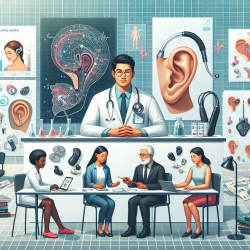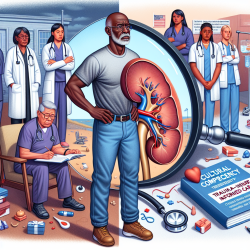Introduction
The COVID-19 pandemic has undeniably reshaped the landscape of public health and quality of life across the globe. A study titled "Repercussion of COVID-19 Pandemic on Brazilians’ Quality of Life: A Nationwide Cross-Sectional Study" provides critical insights into how various aspects of life were affected in Brazil. As practitioners dedicated to improving outcomes for children, understanding these findings can inform and enhance our approaches in speech-language pathology.
Key Findings from the Study
The study, conducted from May to August 2020, surveyed 1859 individuals across Brazil, revealing that economic and social factors significantly impacted quality of life (QoL) more than psychological and physical factors. Unemployment and a positive COVID-19 diagnosis were strongly associated with lower QoL scores. Interestingly, females reported worse QoL scores than males, although having children did not significantly alter QoL perceptions. Higher educational levels correlated with better QoL, emphasizing the importance of socioeconomic factors.
Implications for Speech-Language Pathologists
For practitioners, these findings underscore the necessity of considering socioeconomic and psychological contexts when designing interventions. Here are some actionable insights:
- Holistic Assessment: Incorporate socioeconomic and psychological factors into assessments to tailor interventions that address broader life challenges.
- Family-Centered Approach: Engage families in therapy, recognizing that their socioeconomic status and stress levels can influence a child's progress.
- Advocacy and Support: Advocate for policies that support families economically, as financial stability can significantly enhance a child's QoL and therapy outcomes.
Encouraging Further Research
The study highlights the need for further research into how these factors specifically impact children and their communication development. By exploring these dimensions, practitioners can develop more effective, data-driven interventions. Encouraging collaborative research efforts can lead to a deeper understanding of the pandemic's long-term effects on children's communication and social skills.
Conclusion
The insights from the Brazilian study are invaluable for speech-language pathologists committed to improving children's outcomes. By integrating these findings into practice, we can better support children and families during challenging times. To delve deeper into the original research, please follow this link: Repercussion of COVID-19 Pandemic on Brazilians’ Quality of Life: A Nationwide Cross-Sectional Study.










